This is the newsletter version of Sara by the Season, where I explore what is piquing my curiosity as I try to lean into nature’s wisdom and rhythms. You can listen to me read you the newsletter by hitting play above - or you can click the little link above and to the right to play in your favorite podcast player.
If you know someone who would like this sort of thing, I’d be so grateful if you would share it.
Grant fell in love with our place long before I did. That’s a longer story for another day. But the first time I remember thinking “maybe this could work” was the week before we closed and brought the kids out to walk around. There was (is) an old swing by the creek that we couldn’t get Maeve to leave, so I pushed her while the boys explored. The sun started setting, and the way the light bent in through the trees made me feel all the things. It was a little (lot) like falling in love.
We buried some of our beloved dog, Roxy, as well as many beloved chickens back there. We had picnics and bonfires and many a sunset stroll in this spot. I don’t have many pictures of the spot that we came to call the “best light corner” because the camera never did it justice and maybe because it was a bit too sacred for pictures anyway.
I came home from work early on Tuesday this week because Maeve was home sick and said that they were cutting down trees to find our corner completely cleared of trees. I called the county surveyor’s office and completely lost it on the nice gentleman who is in charge of the project who basically told me there was nothing we could do.
I tried every avenue I could think of to fight or delay the destruction, but they cleared at least 75 old trees (some of them easily at least 150 years old) as of the time I’m writing this, plus lots of other younger saplings. Grant and I moved as many smaller ones as we could Tuesday evening, but not nearly as many as we would have liked. The county has to expand the drainage ditch that runs through our property because the city has allowed too dense of development into the immediate areas upstream of us, much of which is a flood zone, and now the water has nowhere to go. Our family organized over 100 people three years ago telling the city planners exactly that (among other arguments against the most recent development), but they told us we were being melodramatic and that our properties would be minimally impacted.
I loved this particular spot. So much. I grieve it like I would a treasured old friend because it was.
I’m enraged about how the city and county so callously handled this situation.1 But I think most of all, I feel so defeated.
It feels like this is a microcosm of so much of what is wrong with our collective values - or lack thereof. We are what we value, and we Americans value the quick-fix, the thing that best serves me right now, the cheapest choice, the easiest way. We value the rugged individual and go around pretending like interdependence doesn’t undergird everything. We believe we’re exceptional. We’re clueless enough to think that the natural world is ours for the plundering and that living animals are for commodifying - and that there will not be repercussions. We Americans don’t like to think about future generations or the consequences of our actions. We’ve been like this from the time Europeans got here. This is, of course, nothing new for the native people of these lands that have watched us destroy it for centuries now.
None of this is new to me either, but having to listen, smell, and see it so blatantly with my own eyes this week in one of my most beloved places was particularly devastating and demoralizing. I spent definitely hundreds, if not thousands, of hours organizing the fight against the developments that led to this destruction this week. I’m sure that I could have done more, but I was simultaneously working and raising a family. You can see how they keep winning. Fighting them is exhausting, depressing, and often futile.
I spent two days in a hardcore rage spiral, but the past several years have taught me that I physically don’t have the energy to live in rage, nor do I want to. In the midst of this fight over the past several years, we have debated selling and getting farther away from this city’s mindless greed and corruption or maybe even just leave the state that isn’t all that aligned with our closest values anyway. We’ve decided, for now, to stay.
I listened to this episode of Holding the Fire with Dr. Yuria Celidwen, and she talked about what is needed for The Great Unraveling (as she calls it) that is coming but also already here:
Hope may create this bypassing idea that everything is going to be okay, everything will be fine because something is going to happen that [will fix everything for us,] but the horrors are out there. They are very real. Everyday, people lose their lives, and by people, I mean human, other-than-human, lands, places, bodies of water, forests, etc. They are losing their lives, and we are not knowing how to stop it. The horrors are there. We don’t know really if everything is going to be okay, and it’s good that we don’t know if everything will be okay. Because then that hope dissolves and commitment arises. Realizing that there is this sheer imbalance, then we commit to serving, to nourishing, all those actions that will benefit a planetary flourishing. It is not about avoiding the horror and only thinking on the good. We are both…And only in being able to really see them both, embody them both, may we be able to have that chosen action, that no matter what, despite not knowing the outcome, we are still deeply committed to those ways of interacting, of serving that will benefit the larger community.
And so I am wondering if our place is a place where we could practice the kind of commitment Dr. Celidwen is talking about. The kind of commitment she is talking about and that this time requires isn’t naiveto think it will change the city’s ways or arrogant enough to aspire to changing the world. It is a commitment to practicing a new way in this place, if even to only show ourselves that it is possible.
They tear down trees and destroy old growth habitat, and we plant trees and restore soil. They put pavement and turf grass over wild spaces, and we turn over more of this place to wild prairie. They fill our waterways and watershed with Round-Up and worse, and we plant natives along our portion of the creek that do even just a little bit to help alleviate the damage. They send animals to factories, and we only eat animals when we know the farmers who raised them. They truck off top soil, and we compost. By the standard of commitment, every choice can become a vote for the kind of world we want more of, regardless of how the story ends.
Earlier in the podcast, Dr. Celidwen tells a story of her grandfather. She said that she went to him when she was younger, despairing about the state of the world. Her grandfather asked her, “are you doing your best? Are you sharing your food? Are you becoming home for others? Are you bringing together peoples and places?” She responded that she is doing that but asked him if it was enough if she just does it herself. Her grandfather responded, “oh no, you are not by yourself, I do that too. So now we are two, and now you have to go out there and find the other ones. There are many more out there. You just have to find them.”
To use Dr. Celidwen’s words, our place has experienced the horror of American values, despite our efforts to protect it, but that doesn’t have to be the end of the story. We may not know the end of the story, we may have little control over the larger story. But we can create new stories, however small at our place and with our people, beginning with every seemingly small action that we take to live into new values, to consider how our actions affect all beings instead of just ourselves, to plant instead of pillage, to go without instead of adding to the problem, to trust that there is more than enough to go around. “To do our best, to share our food, to become a home for others, to bring people and places together.”
A Ritual for Lament for A Beloved Place
I wrote up a little ritual that our family did together this week out in our corner. Here is a copy for your use if you have a beloved tree or forest that needs grieving:
Here’s to doing our best and finding each other,
Sara
There are so many ways that they could have lessened this impact. They burned the down trees and brush (they would only give us the cut down logs that were on our property), when they could have chipped it for mulch instead, which would have at least allowed the trees a second life in building soil. They could use Bobcats to dredge the creek, which would take a bit longer, but require far less trees to be cut down and possibly even save money. They could have listened to all of us in the first place about what would happen when you slam too many houses and too much pavement into an area with not enough trees and topsoil.


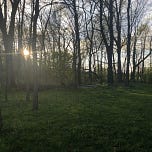


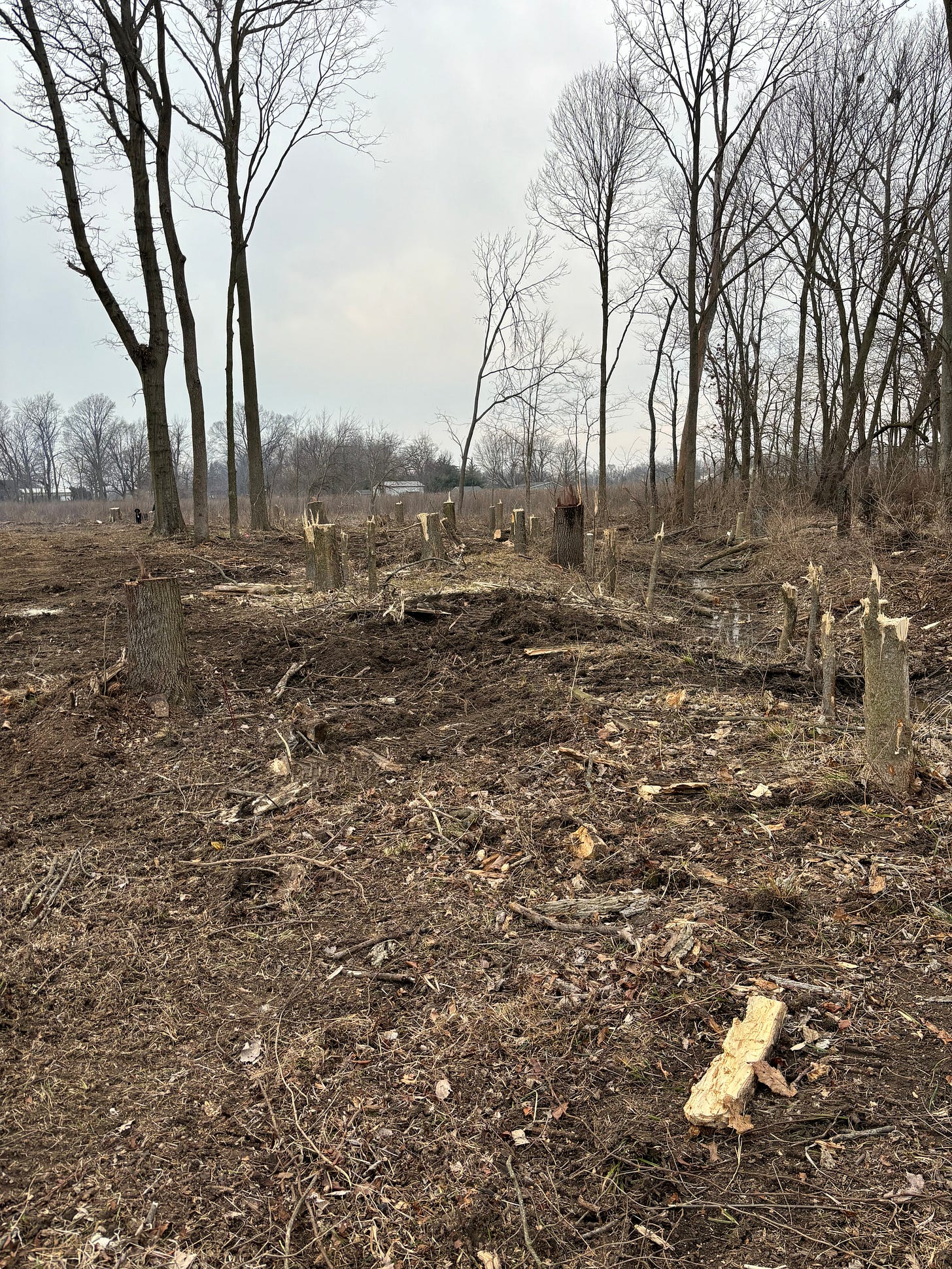
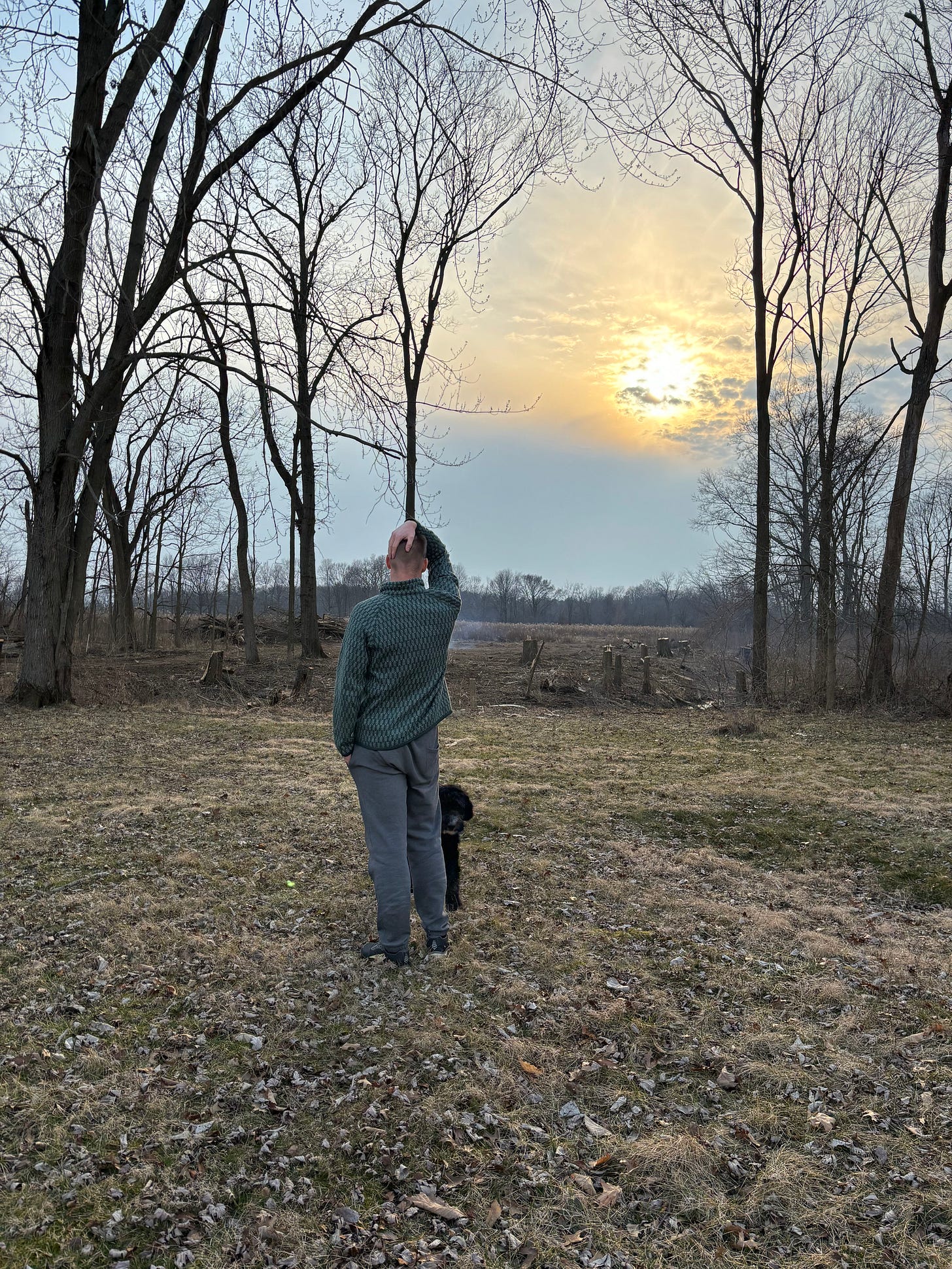

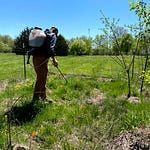
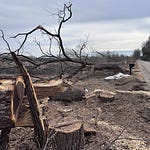
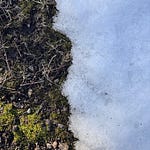
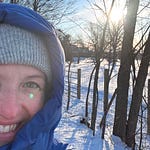
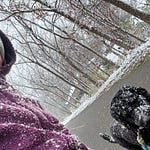
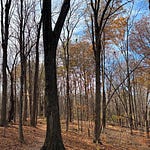
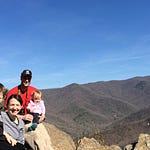
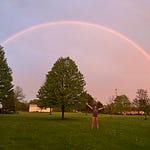
Share this post